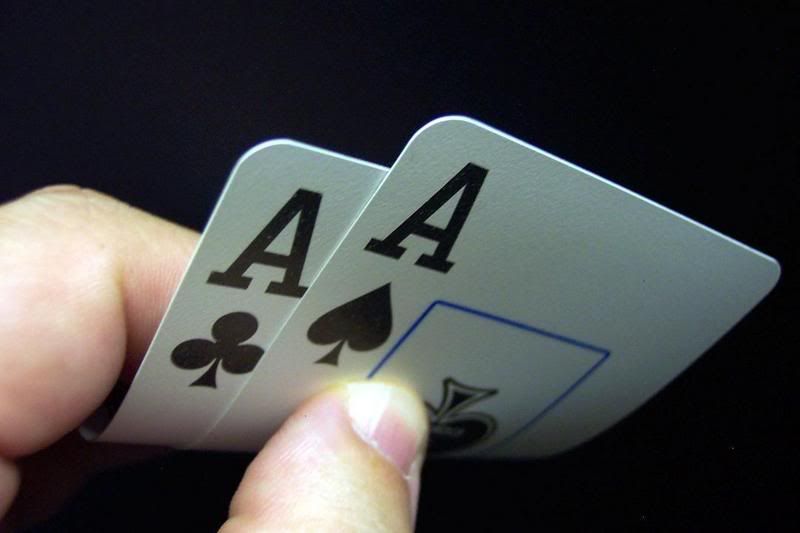The tournament games are actually the easiest. There is a flow to the game that allows a dealer to have a feel for the action. Every turn, the dealer must confirm button position, shuffle, collect antes, verify the blinds, deal quickly, follow and announce the betting, occasionally do a stub count, read the hands, push the pot, muck the cards, move the button, and then start over.
For me, the most difficult part is deciphering the players' actions. While there is a suggested standard for betting and raising, even the most seasoned pros have their own style and a dealer has to intuitively understand what action the player wants to take. This means that the dealer must read verbal and visual cues that are confusing at times.
However, things get notched up to a much higher level in the cash games because of one factor: the dealer's rack.
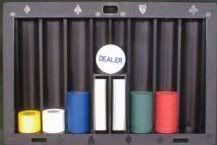
The dealer is responsible for the money in this rack. It sits in front of him and contains between $400 and $800 in chips that are used to make change for the players. It also has slots for extra cards, various buttons to indicate things such as missed blinds and reserved seats, a receipt for the chips, and lammers (plastic dividers to cordon off the chip stacks for easier counting).
I have used a dealer's rack ever since becoming a dealer. However, I have never used a live money rack. There are a whole slew of procedures that I have painfully had to learn on the fly at this tournament.
During a live down, a dealer must count the rack at least twice to confirm its total. This means counting three to five chip denominations, in addition to actual cash. What makes this so hard, as that these counts must be made WHILE THE HANDS ARE BEING PLAYED. A dealer must NOT stop to count the rack. He has to glance down to count the rack subtly in the five-second breaks in the action.
I have struggled to do this, not because the math is terribly hard, but because I am just not used to having to do it.
Additionally, the dealer must take a "time pot", meaning that every 30 minutes the players must pay a small fee (usually $6) that goes to the casino. This time pot must be collected, placed on a small slot beside the tray, and dropped into a locked box that the dealer may never access.
Another difficult aspect of the live games are all the extra allowances that do not appear in tournament games. These allowances include:
- straddle bets (meaning a player can buy the right of last action by posting twice the big blind)
- cash on the table in lieu of chips (meaning a player can plop down $100 bills into the chip stacks)
- prop bets (meaning players will gamble on additional action, such as how many times a deuce will be flopped)
The bottom line is this: while the cash games have been lucrative for me, they have also been mentally taxing because of the multitude of extra responsibilities.
****************************************
Back to the tournament...yesterday was the first day of the four-day Main Event at the Gulf Coast Championship. With 250 players entered at $10,000 a pop, the total prize pool is $2.5 million, with a little less than $800,000 going to the winner. The tournament pays out to 27 places, with the 27th finisher winning $14,000.
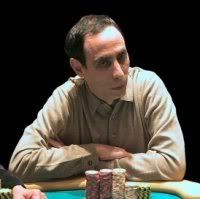
Barry Greenstein
And the poker luminaries are out in force. In addition to Chris Moneymaker, whom I mentioned yesterday, this event features T.J. Cloutier, Mike "the Mouth" Matusow, Barry Greenstein, Dewy Tomko, Chad Brown, Gavin Smith, Mimi Tran, David "Dragon" Pham, Antonio "the Magician" Esfandiari, Alan Kessler, Kathy Liebert, and Mark Seif.
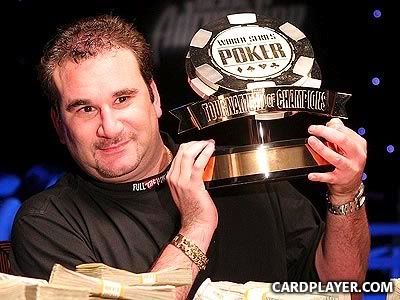
Mike Matusow
The first table I dealt had Cloutier, Brown, and Kessler. I was petrified of making a mistake, but managed an error-free down. TJ Cloutier is a mountain of a man and was sitting directly in front of me. But he was patient and a nice fellow.
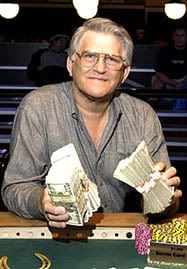
TJ Cloutier
Chad Brown was short-stacked and was sitting directly to my left. I could feel the tension from him.
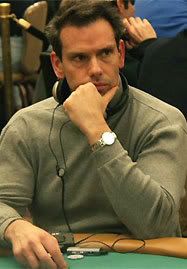
Chad Brown
I worked only three downs in the tournament before returning to the cash games, but I will be working many more today. Hopefully I will perform as well as I did today.
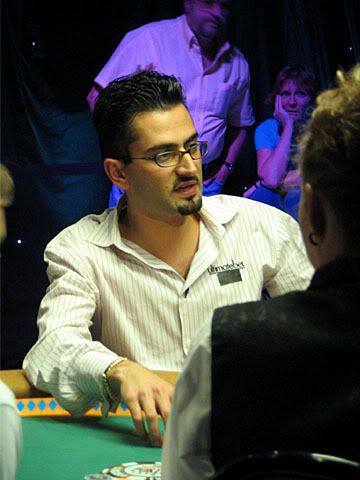
Antonio Esfandiari
Side Pots:
- Funniest comment of the night: "I drink cognac at the table. Makes every hand look like aces!"
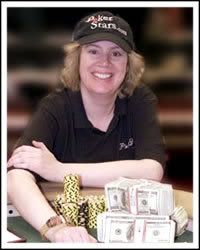
Kathy Liebert
- Most surreal game of the night: Around 4 am, I pushed into a cash game of amazing proportions. There was only one active table left in the room and there were two players seated there. They wanted me to deal a heads-up game and have a second dealer shuffle a back-up deck of cards to speed up the action.
The game was no-limit Texas Hold'em, with $100-$200 blinds. Each hand lasted about 20 seconds, and we roared along for an hour with thousands of dollars moving around. At the climax of the game, one player tossed a $10,000 strap of hundreds into the pot and got called. Ace-Queen beat Ace-Jack and the game was over, with one man taking $35,000 dollars from the other. Amazing and scary. In the wild West, there would have been a gunfight afterwards.
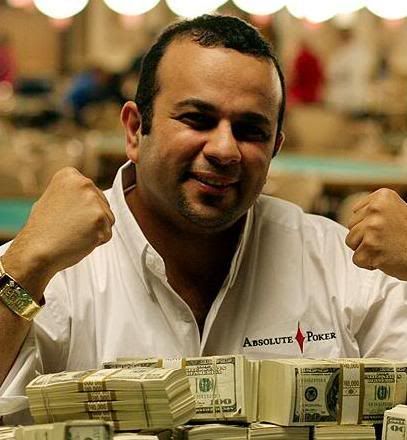
Mark Seif

